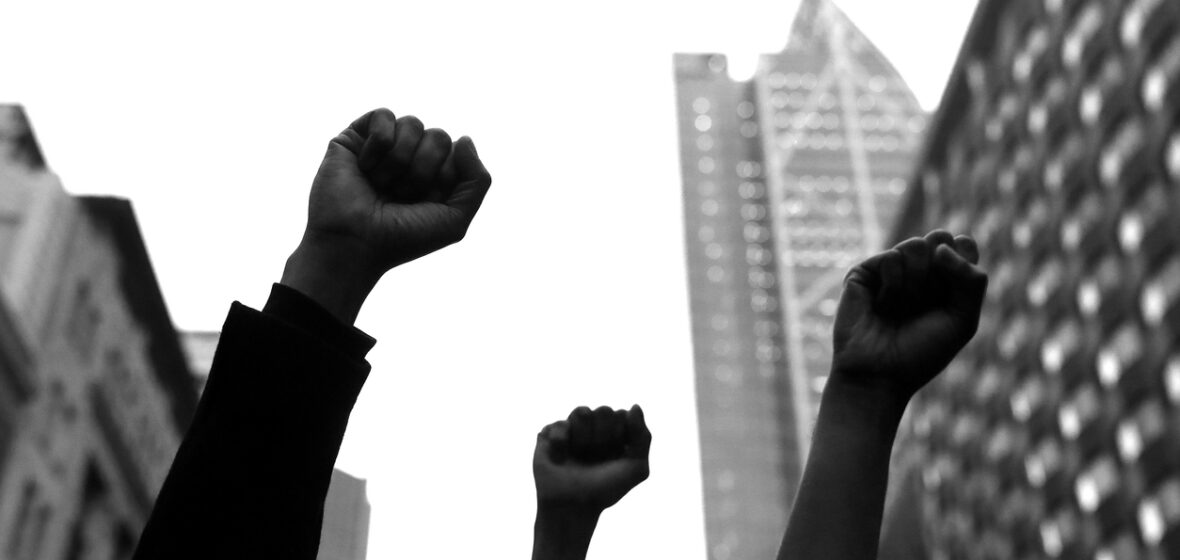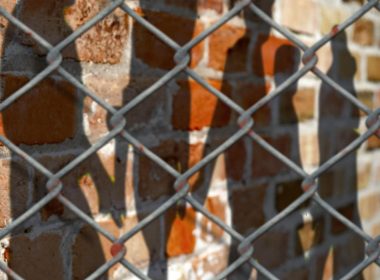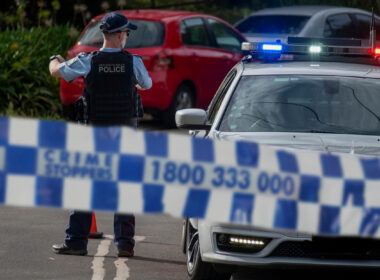Global advocacy organisation Article 19 released their annual Global Expression Report late last year. The report tracks freedom of expression across 161 countries via 25 indicators, giving each nation a score between 0 and 100.
That score places it in an expression category between “Open” and “In Crisis”. The facts illustrated in the report reveal that more than six billion people globally live with less freedoms than they had 20 years ago.
LSJ spoke to Lydia Shelly, the president of NSW Council for Civil Liberties and director of Shelly Legal about the reasons for, and implications of, the global and national decline in freedom of expression.
She says, “I think it’s almost embarrassing that Australia doesn’t have a Bill of Rights federally that sets out what our what our rights are, particularly when Australia has emerged as a global player and regionally within the Asia Pacific with respect to human rights. Everyone talks about rights until it becomes unpopular to do so.”
A global report by a global advocacy organisation
Inspired by the UN Declaration of Human Rights, Article 19 was founded in London in 1987 to research and campaign on human rights, freedom of expression and to regularly report on the state of global liberties. Its inaugural Executive Director was Northern Ireland barrister, human rights activist and academic Kevin Boyle.
Today, Quinn McKew is the Executive Director for Article 19. Her career has encompassed global non-profit management, international relations and managing campaigns for US environmental organisations.
In a press release, McKew said, “While conflicts and power grabs prominently erode democracy and human rights, much of the decline comes from consistent, incremental erosion: changes in policy in the name of misguided understandings of “public safety” or “economic efficiency”, or gradual shifts in attitudes of those in power – in autocracies and democracies alike.
“As the crackdown on free expression intensifies, so must our efforts to call out abuses of those in power – the big and the small – and advocate for solutions that put human rights at their heart. The global problems facing our societies can only be solved with more people being able to express themselves and have greater access to information, to hold power to account.”
A decade of decline in freedom of expression
The Global Expression Report 2023 reveals approximately 80 percent of the global population now has less freedom of expression than a decade ago (the report focused on 80 countries and a population of six billion people). Concerningly, the larger the country, the greater the decline in freedoms, which often happens under the auspices of national security.
The ranking of countries by freedom of expression reveals Denmark, Sweden, Norway and Switzerland leading the top four, with Australia at number 22, on par with Canada, Argentina, the US, and Costa Rica.
Article 19 has been creating this report since 2020 using 25 indicators to score 161 countries. The score means each country is allocated either “Open, Less Restricted, Restricted, Highly Restricted, or Crisis”.
While Australia remains “open”, our nearest neighbours in the Asia Pacific are concerningly ranked as “highly Restricted” and in “crisis”. China, with a population of 1.412 billion is in “crisis”, India with a population of 1.408 billion is “highly restricted”, while the smaller countries of Thailand, Cambodia, Vietnam and Myanmar are all in “crisis”. Indonesia is “restricted” while Papua New Guinea is “less Restricted”.
The report’s visual map of the world indicates the Asia Pacific is in dire straits compared with the Americas and Scandinavian countries.
Shelly says, “I think what we’re seeing politically is that unfortunately both state and federal governments have at times engaged in this superficial debate about human rights and civil liberties, but only when it ultimately serves them.”
Shelly says national security has been used as a justification for increasingly secretive decisions by government, often detrimental to public and press freedoms, regarding privacy and security, particularly after 9/11.
She says, “Notwithstanding the legislative amendments that have come in under the guise of national security, the curtailing of civil liberties and encroachment upon human rights has been really quite dire. I think the majority of Australians haven’t understood, or haven’t appreciated, the extent to which these laws have impacted their freedoms until it’s too late. It’s extremely rare for legislation to be wound back once it’s introduced. So, we know that when it comes to national security, it’s very difficult to get it off the books and I think particularly around secrecy, that’s really concerning.”
Post 9/11, Shelly reflects that, “the impact of a lot of the national security legislation is completely opposite to what a liberal democracy is meant to represent. We’ve got to be very careful regarding the fine balancing act between protecting people, protecting our country and our country’s interests, and ensuring that we fundamentally don’t change the fabric of who we are and what we stand for. That means protecting the very heart of what it means to be a democracy, which is built on transparency and accountability.”
Balancing freedom of expression with protection against hate speech
Inevitably, there must be a balance between freedom of expression and the right for individuals and communities to be protected from hateful speech and behaviour. In November 2023, NSW premier Chris Minns ordered a review of the NSW race hate laws that were reformed in 2018 to introduce a new indictable offence for public threats or incitements to violence made on the basis of race, religion, sexuality of HIV/AIDS status.
No crimes had successfully been prosecuted under these laws, which religious organisations argued was proof that they fall short.
On December 11 2023 the Crimes Amendment (Prosecution of Certain Offences) Bill 2023 removed Section 93Z(4) of the Crimes Act 1900 to “streamline the process for police to prosecute people who offend against section 93Z”, according to a press release from the NSW Government. Section 93Z(4) had required the approval of the Director of Public Prosecutions (DPP) to commence prosecution for a section 93Z offence. During the parliamentary debate on the Bill, some MPs argued that the time required to refer matters to the DPP for approval to charge may deter the laying of charges for offences relating to inciting violence or hatred relating to race, sexual orientation, gender identity, religious beliefs or affiliations or HIV and AIDS status.
In November 2023, Shelly told The Guardian Australia, “If the legal threshold is lowered, it will not make faith communities any safer from a perceived risk of violence or the risk of actual violence occurring. Lowering the threshold will substantially alter the fabric of our democracy.”
Shelly tells LSJ, “We have to be able to disagree, that is fundamental. We also have to be careful to respond not to everything with a legislative response. Sometimes legal intervention, particularly when legislation is rushed, is detrimental.”
Are Australians oblivious to the incremental erosion of rights?
Shelly says, “We have a culture where we don’t have a rights-based landscape broadly speaking. In 2023 and now, many people are trying to focus on the cost of living crisis, which limits their capacity to think about civil liberties and human rights.”
She reflects, “We like to think of ourselves as Aussie larrikins and the mythmaking continues about what our national identity is. For the vast majority of Australians, because human rights and liberties aren’t discussed in schools or parliament, it can be daunting for Australians to engage about accessible human rights and civil liberties.”
The upshot is that this obliviousness – whether intentional or unwitting – is resulting in the erosion of liberties one piece of legislation at a time.
“Because our liberties are chipped away at over time, it is barely recognised at times,” says Shelly. “Sometimes that’s what makes it so hard for people to understand since they don’t see it as successive, just a tiny bit of law impacting elements of society that don’t relate to them – that argument is widely popular.”
Unprecedented elections in 2024
More than ever, freedom of expression is fundamental to democracy and human rights. In 2024, an unprecedented number of elections are due to be held, dictating the future of local and global politics for years to come. More voters than at any time in history will go to the polls in 2024 with at least 64 countries holding elections. This includes India, Indonesia, Taiwan, the US, Britain, Bangladesh, South Africa, and Mexico. Considering approximately half the world’s countries are electoral democracies, according to Our World in Data, there is little likelihood for many global citizens to have a fair and transparent process of electing a national leader.
“Unfortunately, governments often only think in terms of the period that they’re in office, or from election to election,” says Shelly.
“So, we’ve seen this concept of civil liberties, national security, and human rights completely at odds with not only the political cycle, but the media cycle as well. We haven’t had the landscape in this country for a really long time to properly consider: ‘what is civil liberty? What are our obligations as citizens to ensure that liberties remain in place for everybody to enjoy? Even though we might disagree with the religion or the political opinion or the sexuality of that person, how do we collectively ensure that civil liberties and human rights in this country remain strong and firm?”
Shelly admits, “It is hard not to feel great disappointment in your bones when you’ve worked on protecting civil liberties and human rights for so many years. These matters shouldn’t be controversial, and it comes back to education for the broader Australian population. Lawyers have an obligation to change that culture so that all Australians respect the right to hold a political opinion, because freedom of expression doesn’t mean much if another Australian in another part of this country cannot share that freedom.
“Protesters are under surveillance by NSW Police, and effectively demonised in the media and both sides of politics. Particularly around 9/11 under former governments, protesters and individual communities like the Muslim community were scapegoated. When communities are purely viewed through a security lens, that’s damaging to the community. It is disorienting for individuals and it’s intergenerational, resulting in a two-tiered society [between those with liberties and those without].”
A beacon of human rights now hanging in the balance
Shelly says, “Australians may have a scepticism relating to politicians and parliament, and when people lose faith in civil institutions and the influence they hold culturally, we start seeing problems relating to these social fissures and fractures. It weakens cohesion within communities, and it takes away our ‘people power’. People are the leaders of politics. Because of the nature of our media and political cycle, one way that people can use their collective power – which we’ve seen in relation to climate change – is via a large group of people coming together to drive change, whether it is on a micro or macro level, through law and policy.”
Shelly feels Australia “should be concerned” about the Global Expression 2023 report’s assessment of most of the Asia Pacific region as “critical” or “highly restricted”, but that to see ourselves as superior in any way in relation is also detrimental to the quality of our freedom and human rights.
She says, “There’s no doubt Australia has a role to play in the Asia Pacific region. But, we’ve had journalists in our own country subject to AFP raids, we’ve just introduced citizen stripping, and whistleblowers are not adequately protected. If we are going to have a greater influence internationally in this region, we need to set a standard for civil liberties in our own backyard.”
Shelly concludes, “We can do better and have to do better. We are the only liberal democracy without a federal Bill of Rights. I’m disappointed that this isn’t a political priority for NSW and the federal government in 2023. There’s no reason that we shouldn’t have one. You have to ask, why hasn’t it happened yet?”




